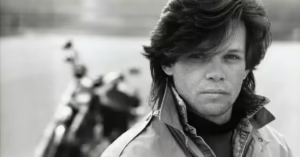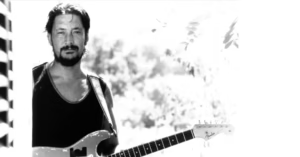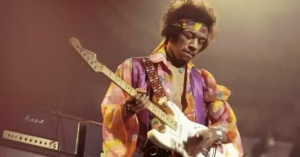The Kinks: British Storytellers and Rock’s Reluctant Revolutionaries
The Kinks. Formation and Early Days
The Kinks were formed in 1963 in Muswell Hill, North London, by brothers:
- Ray Davies – Lead vocals, rhythm guitar, principal songwriter
- Dave Davies – Lead guitar, vocals
Joined by:
- Mick Avory – Drums
- Pete Quaife – Bass (replaced by John Dalton in 1969)
Initially part of the British Invasion, their raw sound and rebellious lyrics set them apart from their peers. They were key architects of garage rock, hard rock, and British pop storytelling.
The Kinks. Early Success and Proto-Hard Rock (1964–1966)
✦ Breakthrough Singles:
- “You Really Got Me” (1964) – A seismic hit that introduced power chords, distorted guitar (thanks to Dave Davies’ slashed amp), and a primal vocal energy.
- “All Day and All of the Night” (1964)
- “Tired of Waiting for You” (1965)
These hits positioned The Kinks as aggressive and streetwise compared to The Beatles or The Rolling Stones.
✦ Albums:
- Kinks (1964)
- Kinda Kinks (1965)
- The Kink Kontroversy (1965)
Though initially known for brash rockers, Ray Davies soon evolved into one of rock’s most nuanced and witty lyricists.
The Kinks. The Golden Period: English Identity and Conceptual Brilliance (1966–1972)
✦ Face to Face (1966)
Marked the beginning of Ray Davies’s social observation songwriting, moving away from teen themes.
✦ Something Else by The Kinks (1967)
Includes:
- “Waterloo Sunset” – Often cited as one of the greatest British pop songs
- “David Watts”
- “Death of a Clown” – Sung by Dave Davies
✦ The Kinks Are the Village Green Preservation Society (1968)
Their masterpiece: A concept album about nostalgia, English life, and cultural loss.
Although not initially a commercial success, it has since been hailed as one of the greatest and most influential albums in rock history.
✦ Arthur (Or the Decline and Fall of the British Empire) (1969)
A rock opera tackling post-war British society, emigration, and class tension.
Includes: “Victoria,” “Shangri-La,” “Australia”
✦ Lola Versus Powerman and the Moneygoround, Part One (1970)
A satirical concept album about the music industry.
Hits include:
- “Lola” – A bold story about gender and identity
- “Apeman” – Critique of modern society
The Kinks. U.S. Ban and Cult Status
From 1965–1969, The Kinks were banned from touring in the United States due to union and behavior-related issues. This limited their global exposure during the height of the British Invasion.
However, this isolation encouraged their focus on British themes, leading to their most unique and enduring work.
The Kinks. The 1970s: Theatrical Ambition and Hard Rock Evolution
The band transitioned into theatrical concept albums and rock operas:
- Muswell Hillbillies (1971) – Working-class struggles and social commentary
- Preservation Act 1 & 2 (1973–74) – Ambitious but critically divisive
- Soap Opera (1975), Schoolboys in Disgrace (1976)
They returned to mainstream U.S. success with arena rock-oriented albums:
- Sleepwalker (1977)
- Misfits (1978)
- Low Budget (1979) – Includes “(Wish I Could Fly Like) Superman”
1980s–1990s: Late-Period Hits and Final Years
The Kinks enjoyed a resurgence in the U.S. thanks to MTV exposure and consistent touring.
Key albums:
- Give the People What They Want (1981) – “Destroyer”
- State of Confusion (1983) – “Come Dancing” (a major hit in the U.S.)
- Word of Mouth (1984) – “Do It Again”
The band gradually faded from the mainstream by the early 1990s. Their final studio album was Phobia (1993). They disbanded unofficially in 1996.
Legacy and Influence
The Kinks are hailed as:
- Forefathers of punk, Britpop, and indie rock
- Influences on artists like The Clash, Blur, Oasis, The Jam, and Arctic Monkeys
- Masters of observational songwriting, mixing satire with empathy
- One of rock’s most literate, culturally rich, and musically daring groups
Despite never reaching the global superstardom of some peers, they are considered one of the greatest and most influential British bands of all time.
They were inducted into the Rock and Roll Hall of Fame in 1990 and received the Ivor Novello Award for Outstanding Contribution to British Music.
Interesting Facts
- Ray Davies was stabbed in New Orleans in 2004 while chasing a purse snatcher — he survived and later wrote about it.
- Dave Davies is considered a pioneer of distorted guitar and one of the first true “guitar heroes.”
- “Lola” was briefly banned by the BBC for mentioning Coca-Cola (product placement rules).
- The band’s name, “The Kinks,” was chosen to seem edgy — though they later admitted to regretting it.




